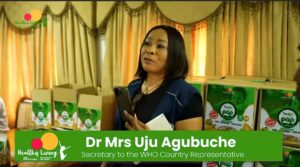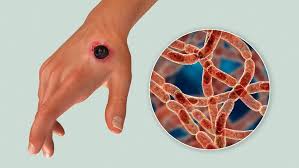COVID-19: NAFDAC ignores WHO decision on use of chloroquine

Contrary to the suspension of trial announced on Monday by the World Health Organisation (WHO) as a result of “safety concerns”.
Nigeria will continue with the solidarity trial of chloroquine for COVID-19 treatment, the National Agency for Food and Drugs Administration and Control (NAFDAC) said on Tuesday.
According to the international agency, a report published by Lancet, which indicated that more people are dying from the use of the drug, influenced its decision.
But Director-General of NAFDAC, Prof. Mojisola Adeyeye said on a television programme on Tuesday: “There is data to prove that hydroxychloroquine worked for many COVID-19 patients. Therefore, we would continue our own clinical trials in Nigeria.
“Hydroxychloroquine has been proved to work at a mild stage. So the potency depends on the severity of the disease in the patient’s body.
“If medical doctors, research scientists, pharmacists, herbal experts work together, we should conclude the clinical trial in three to four months. The narrative might change afterwards but for now, we believe in hydroxychloroquine.”
During the Presidential Task Force (PTF) on COVID-19 briefing on May 18, Fiona Braka, the officer in charge of WHO in Nigeria, announced that the solidarity trial had started in Nigeria.
Three days later, Lagos State Health Commissioner Prof Akin Abayomi, said the state had concluded plans to roll out hydroxychloroquine trials for possible prevention and treatment of COVID-19.
The suspension of the process by WHO came few weeks into the solidarity trial.
But doctors caution NAFDAC on turning against the WHO advice. Speaking with The Nation, President of the Nigerian Medical Association (NMA), Dr. Francis Faduyile, said: “The World Health Organisation did not just stop the use of chloroquine, they said that some of the researches that have been carried out show that chloroquine does not have any good effect.
“I hope NAFDAC can study the report and decide on the way they want to move from there. Again, NAFDAC does not conduct researches, it is only for registration. We have so many researchers that are the working on this in Nigeria.
“Concerning the evaluation and analysis of herbal medicines, it is always a welcome development to test whatever anybody brings up, so that we will not be accused of not thinking of how to resolve some of these problems within the country.
“We will continue to hope that we can see something good from such claims that they have stated. Certainly, Nigerian traditional medicine or alternative medicine is improving because they are now willing to bring their formulation for clinical trials and that is the way to go and be recognised within the committee of nations.”
The President of the National Association of Resident Doctors (NARD), Dr. Aliyu Sokomba, said: “The solidarity trial was like any other clinical trial that was embarked upon to determine the efficacy as well as the safety of the hydroxychloroquine in the treatment of COVID-19.
“The first stage is to establish the safety of the drugs before you even move to the efficacy. If the test does not scale through safety, you cannot proceed.
“I support the stand of the WHO to temporarily stop the use of hydroxychloroquine because it is the right thing to do. They probably need to go back to the laboratory and re-evaluate the use of the drug before bringing it up again for a clinical trial.
“As for its continued use in Nigeria, I want to believe that the drug again is being used as a trial drug. Perhaps, based on the information available to the researchers here in Nigeria, they do not think the drug is not safe for use and they are proceeding with the research. I want to believe that in due course, whether the drug is safe or not, it will become obvious and the appropriate measures will be taken whether to discontinue the use of the drug or not.
“With regards to the evaluation of traditional medicines for a potential treatment or cure for COVID-19, I think the move by the Federal Government is a welcome development. This is as long as the efficacy of whatever drug they are proposing will be evaluated before they are made available to the public for use.”









